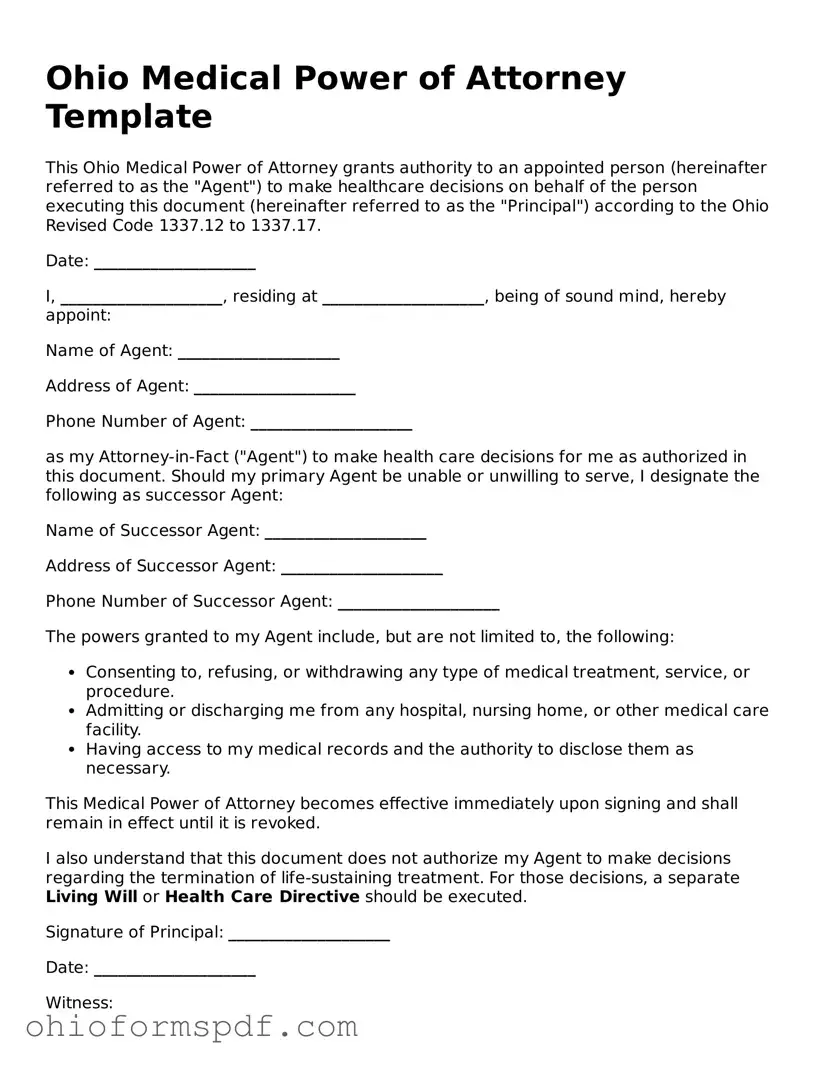Blank Ohio Medical Power of Attorney Form
The Ohio Medical Power of Attorney form is a legal document that allows individuals to appoint someone they trust to make healthcare decisions on their behalf if they are unable to do so. This arrangement ensures that one's health care preferences are respected, even in situations where they cannot express them personally. It's a crucial step for anyone who wants to ensure their medical treatment aligns with their wishes, highlighting the importance of the document's role in personal health care planning.
Prepare Form

Blank Ohio Medical Power of Attorney Form
Prepare Form

Prepare Form
or
⇩ Medical Power of Attorney PDF
You’re in the middle of the form
Complete Medical Power of Attorney online — edit, save, and download smoothly.